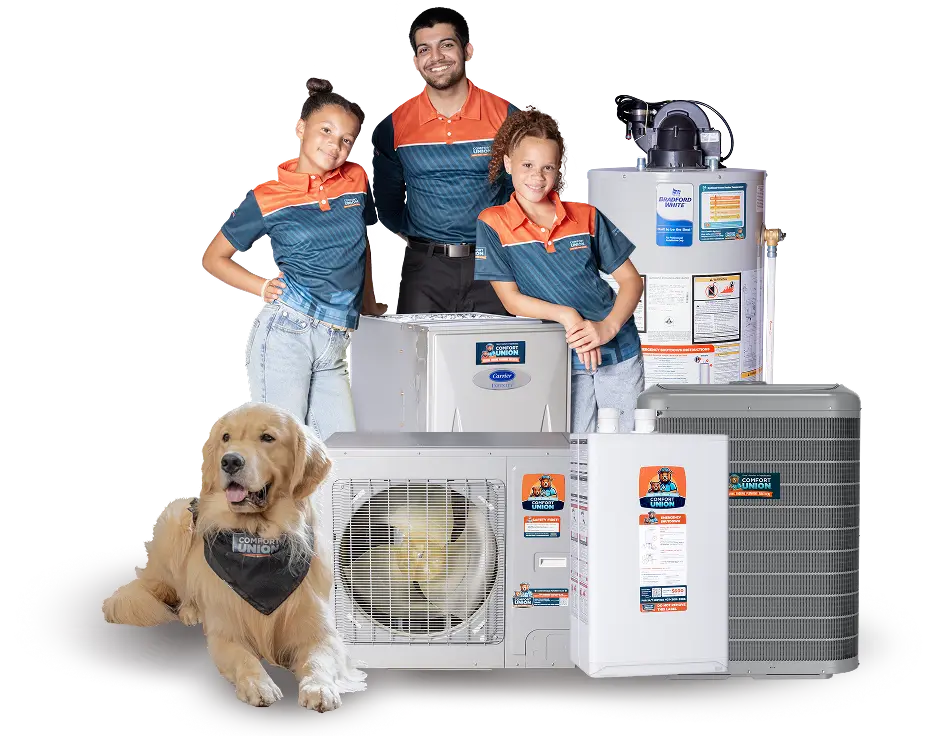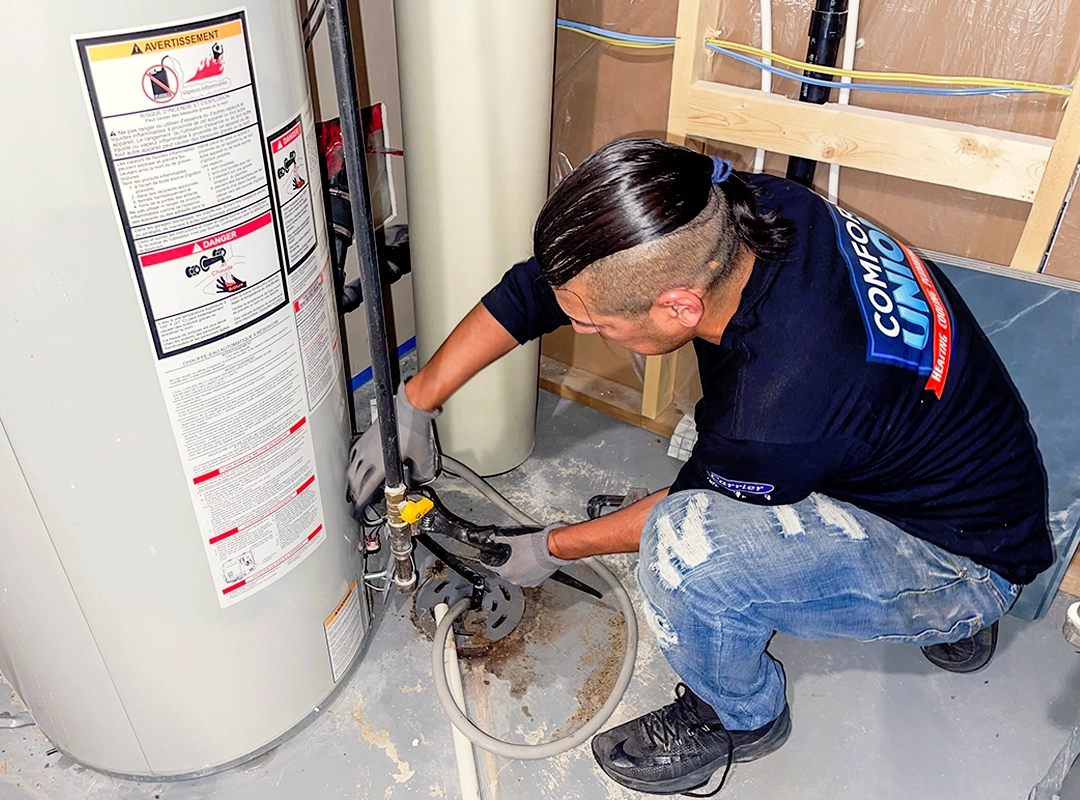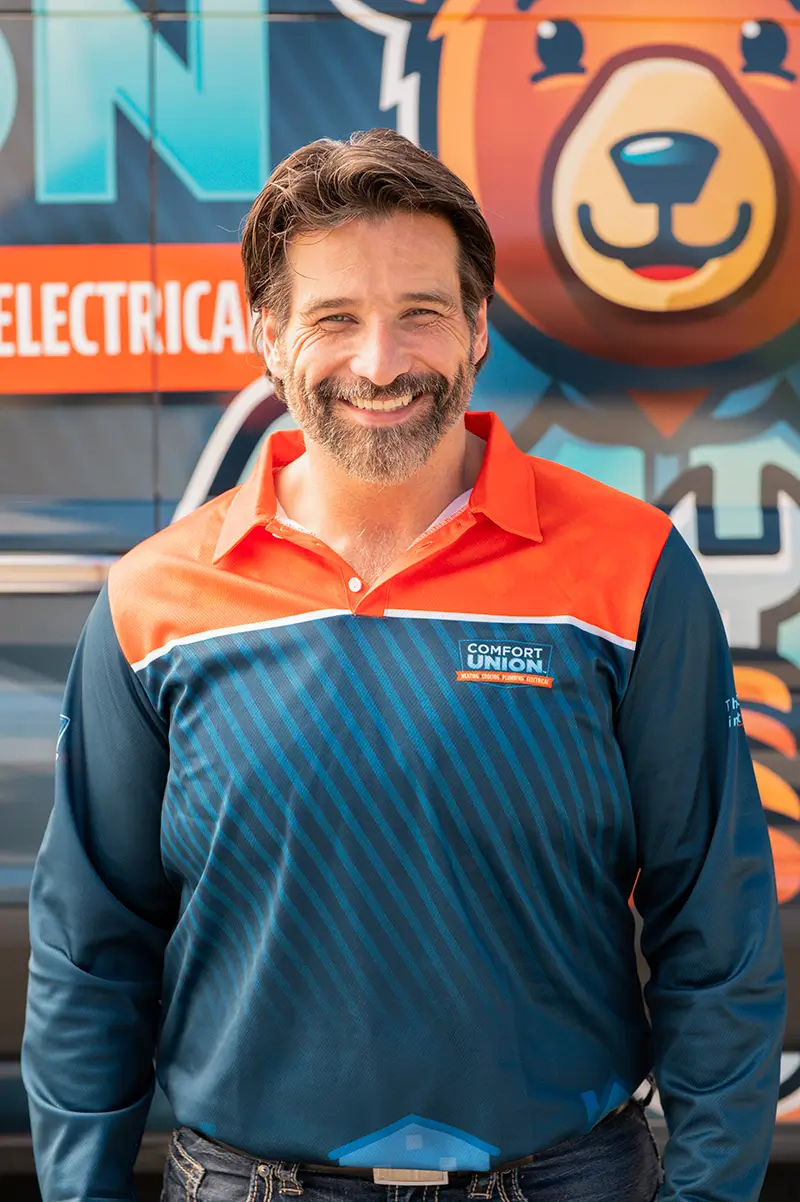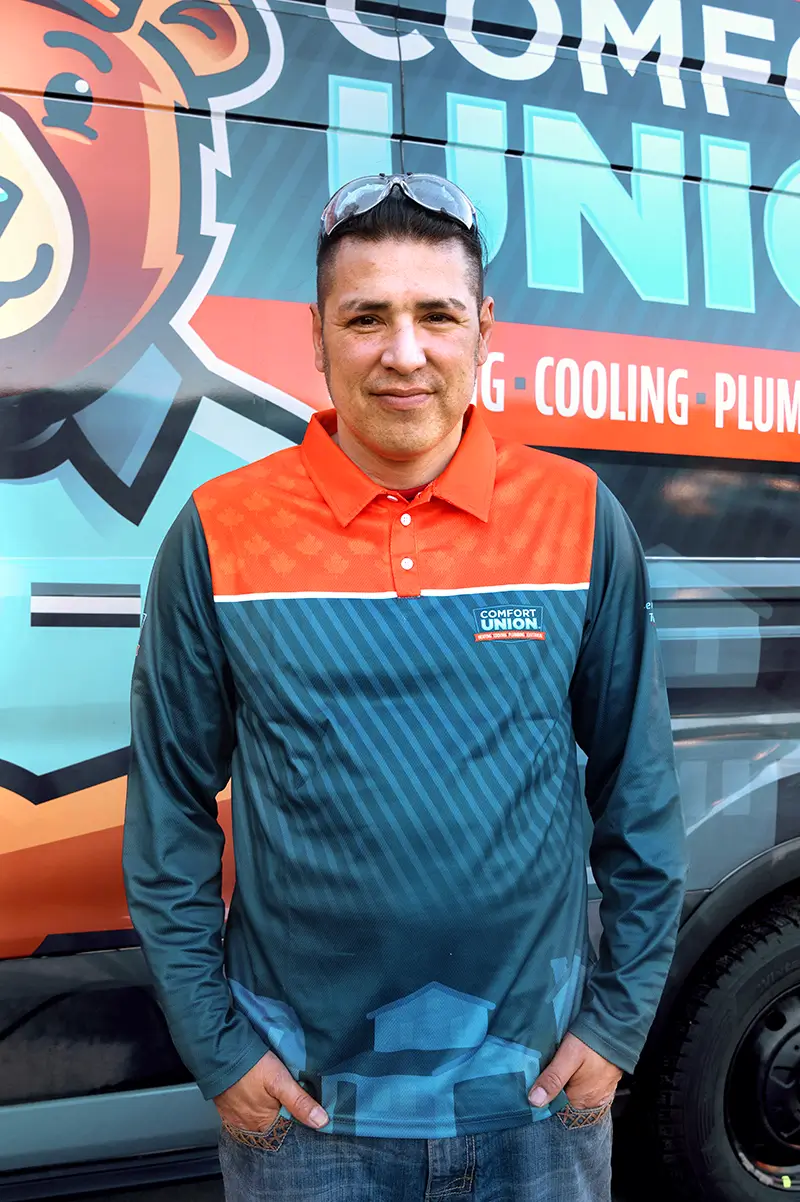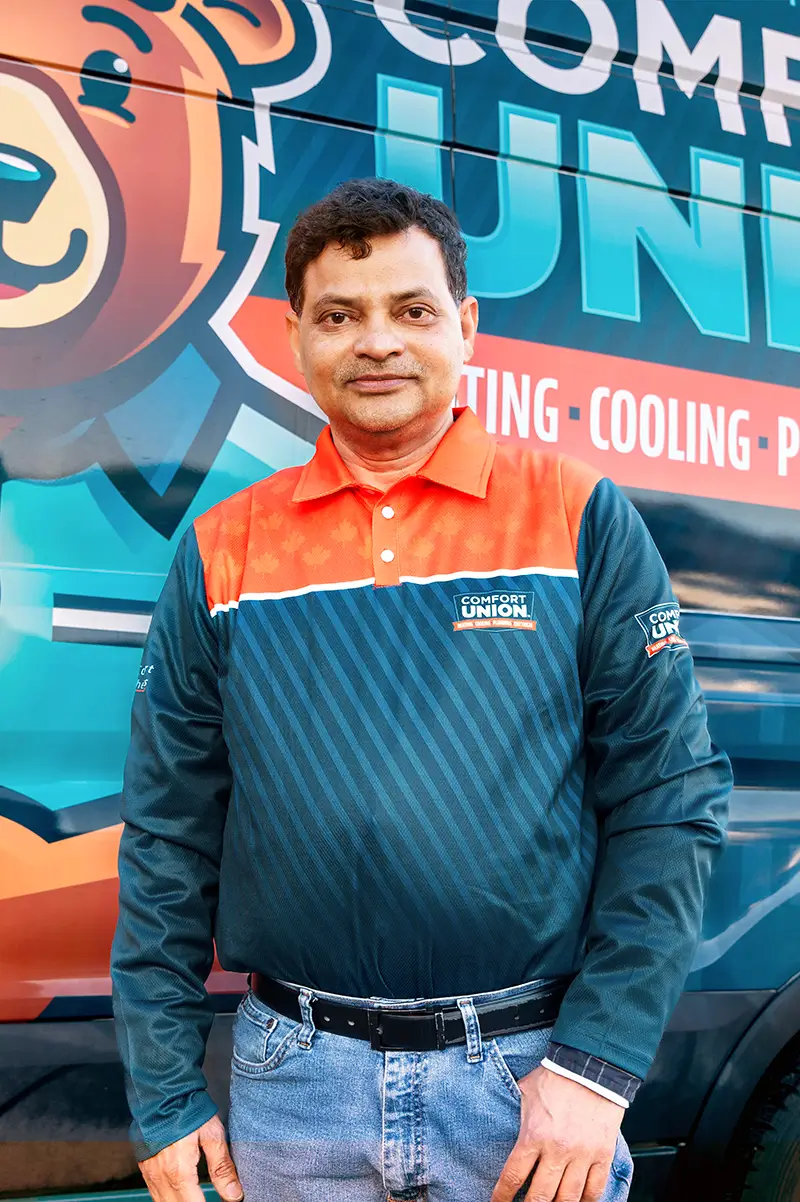If you live in Calgary, you already know your water heater doesn’t get a break. Between icy mornings, marathon showers, and endless laundry cycles, your hot water tank works overtime, especially in winter.
That’s why regular maintenance isn’t optional; it’s essential. A few easy steps each year can add years to your tank’s lifespan, keep your water cleaner, and save you from costly repairs or replacements. In this 2026 guide, we’ll walk through everything you need to know to maintain your hot water tank in Calgary’s tough climate.
Need a New Hot Water Tank?
With Flexible Financing Options
7 Key Hot Water Tank Maintenance Tasks Every Calgary Homeowner Should Do
A little bit of DIY care goes a long way. Here are the most important steps for keeping your hot water tank in top shape throughout the year.
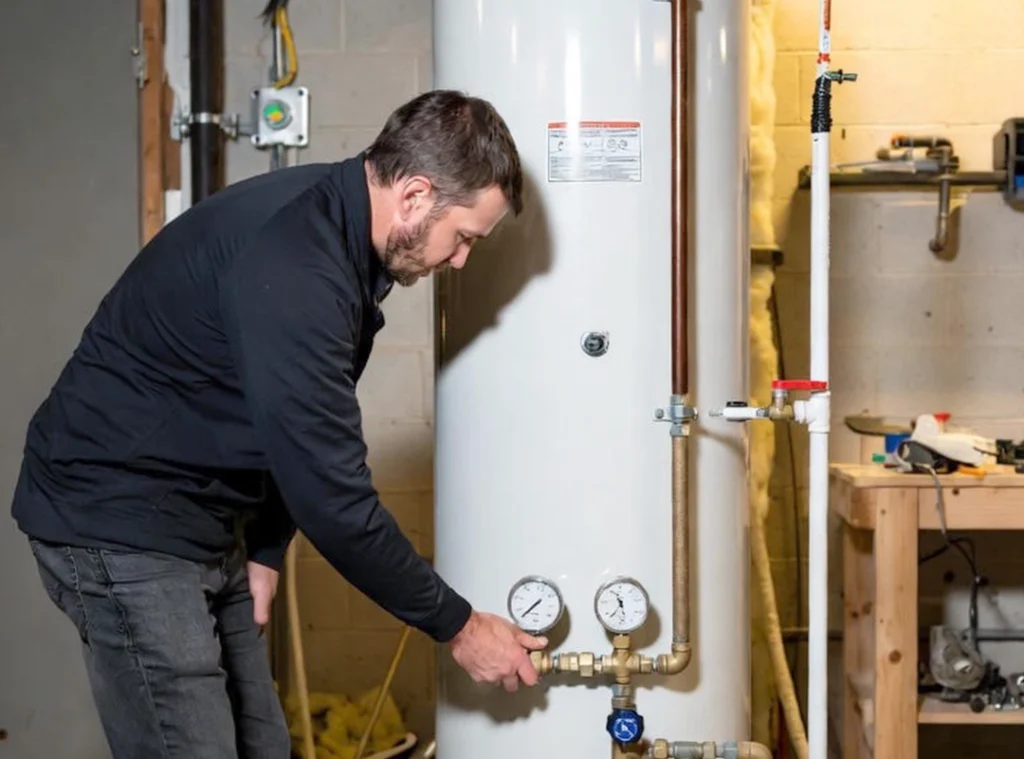
1 Flush the Tank Once a Year
Calgary’s hard water is full of minerals that settle at the bottom of your tank, forming sediment. This sediment traps heat, making your system work harder and less efficiently.
Once a year, turn off your tank’s power or gas, connect a hose to the drain valve, and flush out the sediment until the water runs clear. Spring or fall are ideal times for this task.
If you’re not comfortable doing it yourself, a professional flush from Comfort Union ensures a complete and safe cleaning.
2. Inspect and Replace the Anode Rod
Think of the anode rod as your tank’s bodyguard; it attracts corrosion so your tank doesn’t. In Calgary’s mineral-heavy water, anodes wear down faster.
Check it once a year and replace it every 3–5 years to prevent tank rust or leaks. It’s one of the cheapest ways to add years to your water heater’s life.
3. Check the Temperature Setting
Your hot water doesn’t need to be scalding. The ideal setting is between 49°C and 54°C, which prevents burns, saves energy, and keeps your water hot enough to prevent bacteria growth.
Lowering the temperature slightly during warmer months can also reduce your gas or power bills.
4. Test the Pressure Relief Valve (T&P Valve)
The temperature and pressure relief valve is a small but critical safety feature. It releases water if pressure builds up inside the tank.
Lift the valve’s lever carefully, and you should see a quick burst of water. If nothing happens or the valve leaks afterward, it’s time to replace it. Always handle this step with caution, or have a pro do it during your annual tune-up.
5. Drain the Expansion Tank (If Installed)
Many newer Calgary homes include expansion tanks to absorb pressure changes in the plumbing system. These tanks also need occasional draining to prevent stress on your water heater.
Ask your technician to check the expansion tank during your next service visit to make sure it’s functioning properly.
6. Insulate the Tank and Pipes
A little insulation can make a big difference during Calgary’s deep freezes. Wrapping your tank in an insulation blanket and covering exposed pipes with foam sleeves can reduce heat loss and improve efficiency by up to 10%.
This also helps prevent freezing in unheated spaces like basements or garages.
7. Check for Leaks or Rust
Once a month, do a quick inspection around the base and fittings of your tank. Look for moisture, corrosion, or rust spots. Small leaks can worsen fast, so catching them early can save you hundreds in repairs.
Professional Maintenance Tasks for Calgary Homes
While DIY maintenance covers the basics, there are a few tasks best left to professionals.
During an annual service, a licensed Calgary technician will:
- Deep clean the burner assembly, blower, and combustion chamber.
- Descale the tank or heat exchanger to remove stubborn mineral buildup.
- Inspect gas lines and venting for leaks or obstructions.
- Test safety systems like the pressure switch and carbon monoxide sensors.
- Lubricate motors and moving parts for quieter operation.
Comfort Union’s hot water tank maintenance and repair services include all of these steps and more, designed to help Calgary homeowners stay safe and comfortable year-round.
Common Hot Water Tank Problems Caused by Lack of Maintenance
Skipping maintenance doesn’t just shorten your water heater’s life because it can cause expensive and inconvenient problems.
Rumbling or banging noises often indicate sediment buildup at the bottom of the tank. Over time, Calgary’s hard water causes minerals to collect, trapping heat and creating those loud popping sounds.
Rusty or discolored water usually points to a failing anode rod or internal tank corrosion. If left untreated, it can lead to leaks or total tank failure.
Fluctuating water temperatures are commonly caused by a faulty thermostat or sediment blocking the heating element, reducing the system’s ability to heat water evenly.
Leaks around fittings often result from pressure buildup or rusted connections. Even small drips should be inspected promptly to prevent larger plumbing or tank issues.
Most of these issues start small but get worse quickly in Calgary’s hard water conditions.
Calgary Homeowner Maintenance Schedule (At-a-Glance)
| Task | How Often | Purpose |
| Flush the tank | Once per year | Removes sediment buildup |
| Check the anode rod | Every 1–2 years | Prevents corrosion |
| Inspect T&P valve | Every 6 months | Ensures safety |
| Adjust temperature | Seasonally | Improves energy efficiency |
| Professional inspection | Every 12 months | Extends lifespan and ensures safety |
FAQs Calgary Homeowners Ask About Hot Water Tank Maintenance
How often should I flush my hot water tank in Calgary?
At least once a year, ideally in spring or fall. Calgary’s mineral-heavy water means sediment builds up quickly.
Can I do maintenance myself?
Yes, but for tasks like flushing or checking the anode rod, follow safety steps carefully. Anything involving gas or electrical components should be done by a technician.
Why does my water heater make banging noises?
That’s sediment buildup, most likely; that’s the sound of trapped steam bubbling through minerals. A flush will usually fix it.
Does Calgary’s hard water really cause more wear?
Yes. Hard water leaves calcium deposits that coat heating elements and tank surfaces, making your system work harder.
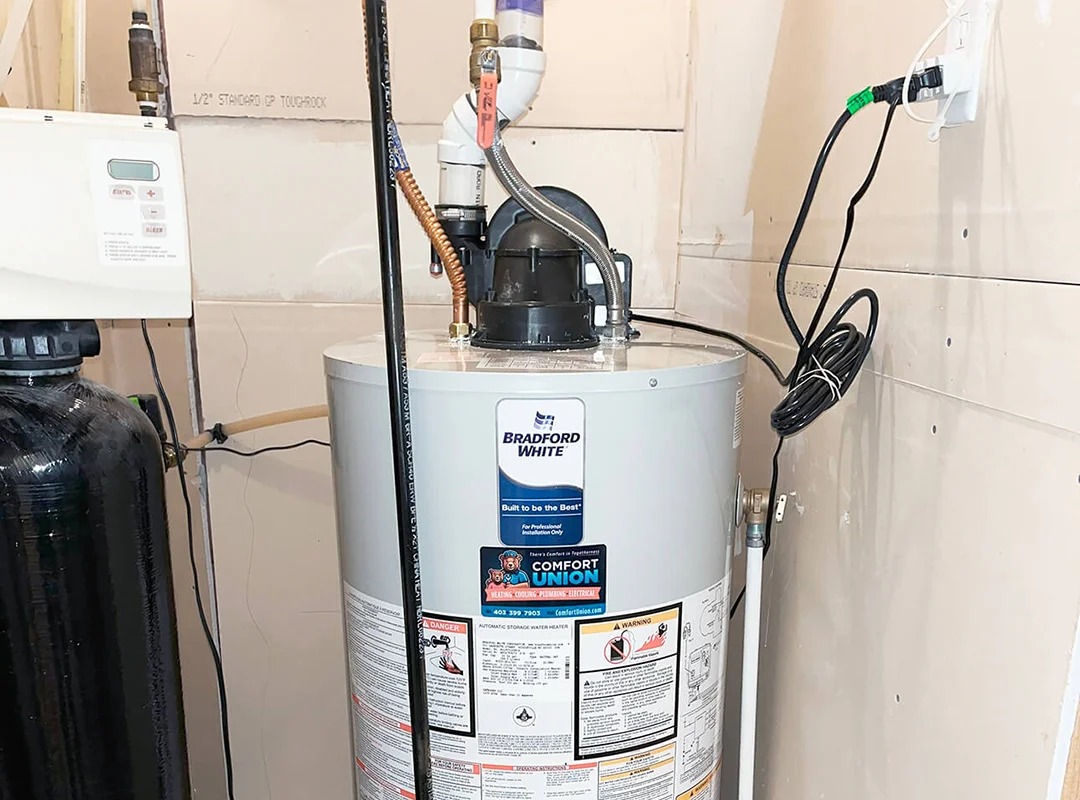
Professional hot water tank installs in Calgary with energy-efficient models, expert setup, and clean workmanship, backed by Comfort Union’s trusted team.
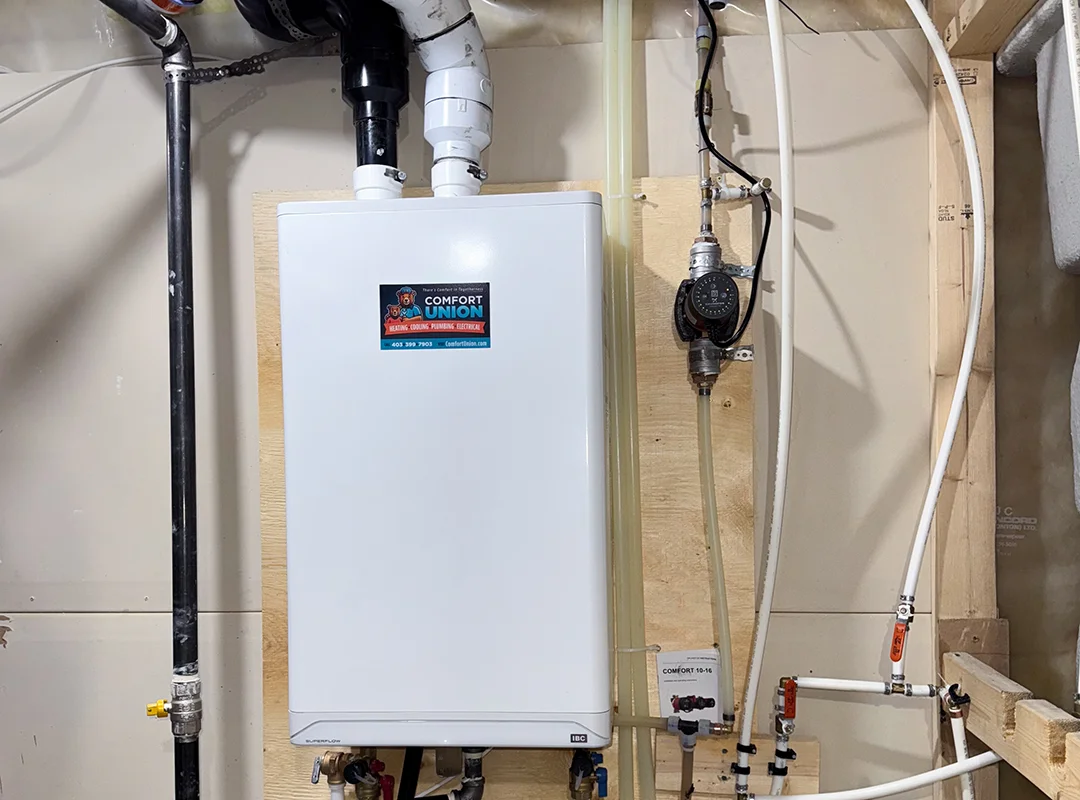
Upgrade to a tankless water heater in Calgary with 24/7 installation service, transparent pricing, and expert HVAC professionals you can count on.
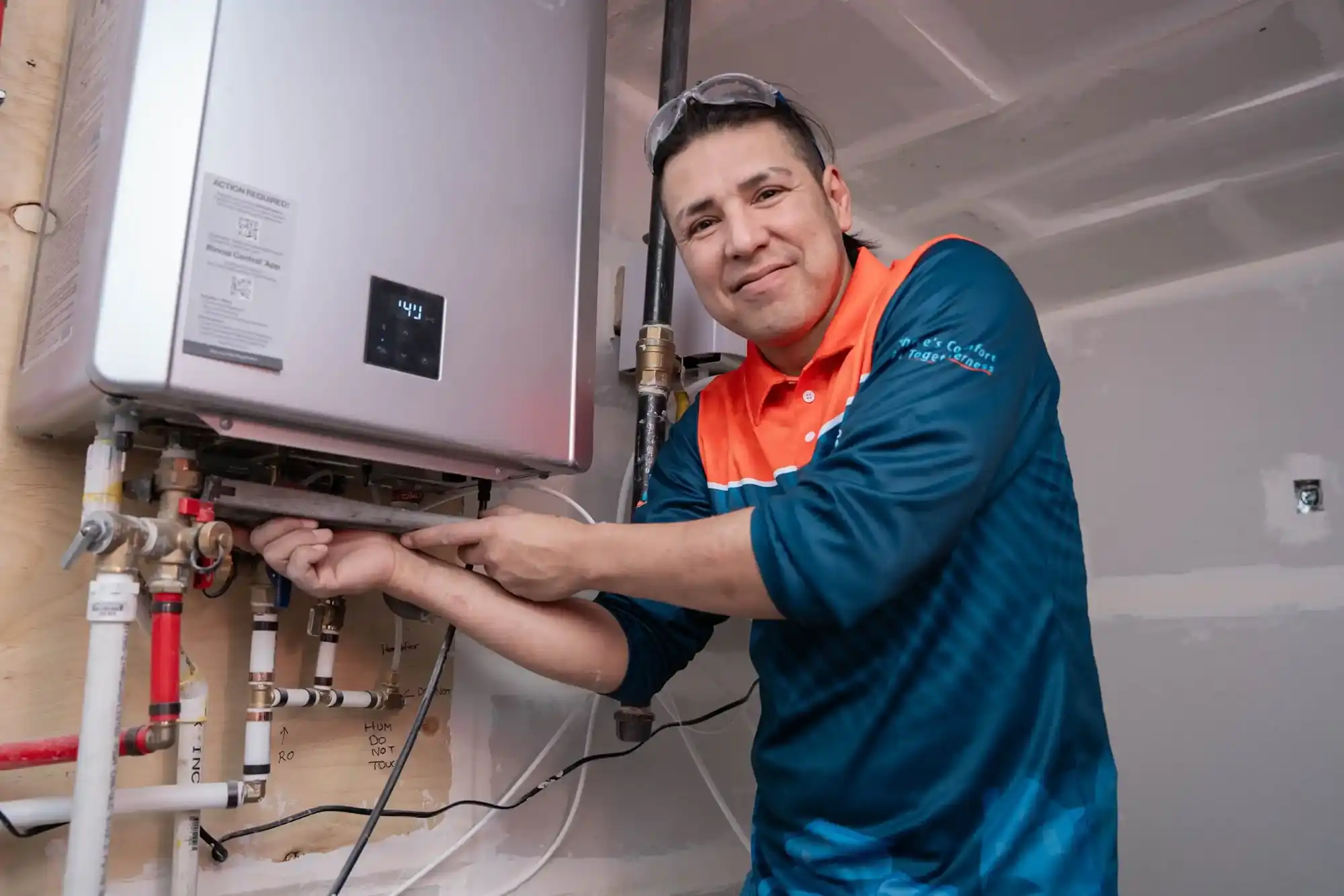
Quick and reliable tankless water heater repairs in Calgary. Get fast diagnostics, honest pricing, and long-term performance from local specialists.
